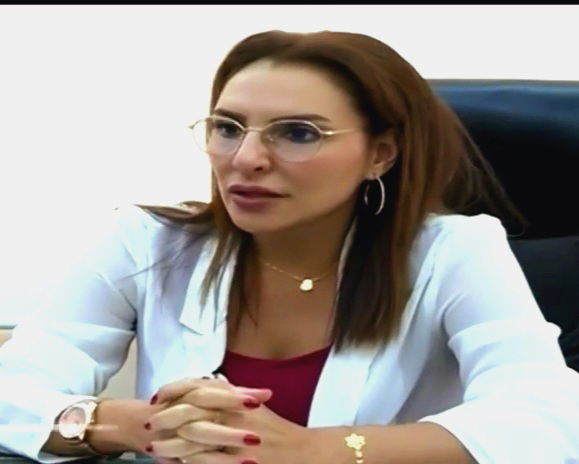Long Rebounds: Time Bombs Threaten the Lives of Many Lebanese

Conducted by: Dina Hashem
Following the severe strike on Fathallah Street in the Basta Al-Fawqa area of Beirut, the Lebanese Real Estate Authority has urged people to avoid approaching buildings damaged by toxic emissions and chemical reactions that may threaten health.
The narrowness of the targeted locations complicates rescue operations, necessitating cooperation with security authorities and civil defense to facilitate relief efforts and minimize losses.
Attorney Andira El-Zouhairi, head of the Lebanese Authority of Property, (LAP) explained in an interview with Lebanon Debate that the Basta area in Beirut, one of the city's most significant and oldest neighborhoods, is characterized by high population density and closely packed buildings and narrow alleys.
Basta is divided into "Basta Al-Tahta" and "Basta Al-Fawqa," both suffer from infrastructure problems, such as the urgent need for restoration and overcrowding, which hinder movement.
Most of Basta's buildings are old, and many date back more than 60 years, despite the presence of some relatively recent structures. Unfortunately, with the escalation of aggression and the expansion of targeted areas, this is the second time this area and its surroundings have been hit.
Zouhairi emphasized that there is no guarantee that areas, where displaced people have sought refuge, will remain safe from being targeted due to the use of destructive weapons. Before the war and the Beirut port explosion, the governorate of Beirut had the highest percentage of buildings threatened with collapse, with over 10,460 buildings at risk. The port explosion and the war have further complicated matters.
Beirut's old neighborhoods, characterized by heritage or even non-heritage buildings, as well as new buildings built according to public safety standards, will not be spared damage if they are not directly hit by raids or shelling.
Other factors, such as the age of the buildings and the absence of periodic maintenance due to old rental laws or classification by the Ministry of Culture, also contribute to the risk.
The internationally banned smart projectiles greatly affect the durability of buildings and their foundations, regardless of their high safety standards. Due to massive displacement from unsafe areas, the number of residents in these old and adjacent neighborhoods with high population density has increased.
Attorney El-Zouhairi added that the use of six projectiles resistant to fortifications in a somewhat closed area due to the contiguity of its buildings and restricted space caused additional pressure, leading to damage, demolition, and the total or partial collapse of dozens of buildings at the targeted site.
She suggested that municipalities should conduct accurate surveys within their municipal scope of real estate, classify the condition of buildings, and assess their danger levels. This would help follow up on threatened buildings and prevent their collapse on residents.
El-Zouhairi, concluded by expressing condolences to the martyrs and victims, wishing a speedy recovery to the injured. She emphasized the need for an emergency and comprehensive plan to fix or demolish buildings that may constitute time bombs during the truce period and stop the aggression.
These buildings will not wait for the end of aggression or war, especially with the approach of winter and the unknown dangers of inhaled war remnants.
Lebanon Debate News Website, conducted by Dina Hashem.



